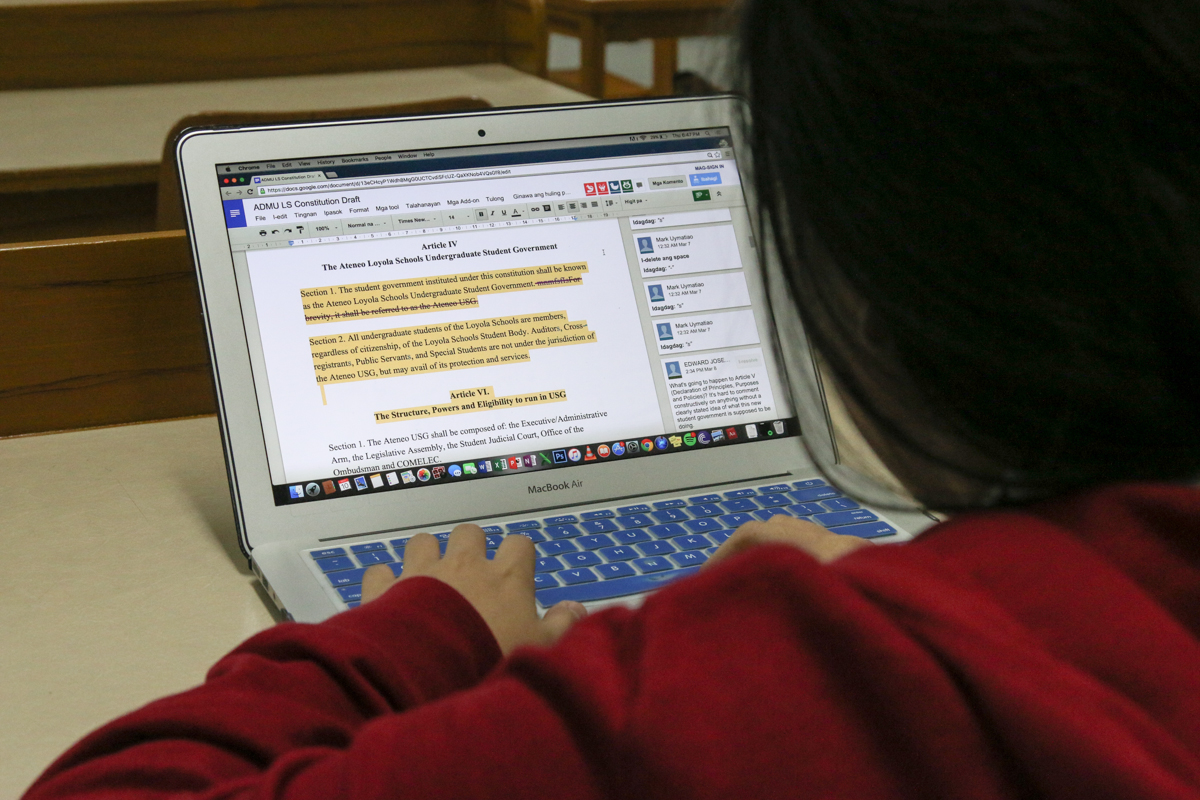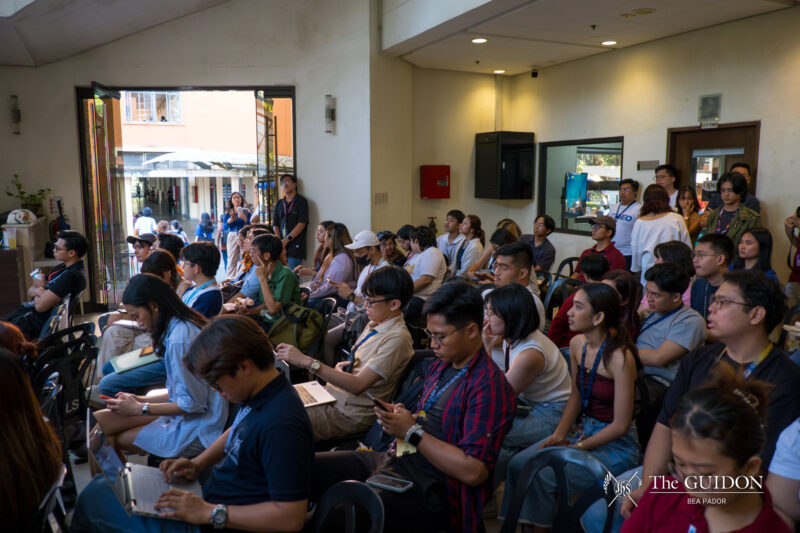THE LOYOLA Schools Constitutional Convention (ConCon) released the proposed draft of the new constitution—a result of five delegate assembly readings convened throughout January—on March 6, Sunday evening.
The draft was released through Google Documents to allow the student body to input their comments and suggestions.
“When we released the draft, it’s precisely to get the pulse of the student body,” said Shiphrah Belonguel, ConCon head.
The final reading of the draft is set for March 11, Friday, at the San Hurtado Hall of the Ateneo School of Government.
This final reading, also open to the student body, will consider all the student body’s recommendations.
According to Belonguel, the reading will be “less consultative” and set more towards “resolution-building.”
Beyond vacancies
The final reading is set to be an avenue for ConCon delegates to review the comments gathered over the week.
Among the points raised by commenters were the wording in the preamble, changing the name from Sanggunian ng mga Mag-aaral ng mga Paaralang Loyola ng Ateneo de Manila to the Ateneo University Student Government (USG), separation of powers among the different arms of the student government, and indefinite provisions regarding sectoral representation.
In an interview with The GUIDON, Ateneo Task Force Head Mawe Duque pointed out the seeming “grandness” of the revisions.
“At the start of the year, I was expecting ConCon to just clean some conflicting or vague provisions [in the old constitution],” Duque said.
The grandness, he added, may have been caused by a pressure to “listen to a lot of voices, a lot of opinions.”
ConCon was originally formed to address the problem of vacancies in the top positions in the Sanggunian.
Last year’s general elections left the seats for president, secretary-general, and finance officer vacant; resulting special elections in the following semester were not able to augment the said vacancies.
With the revision of the timeline in November, however, the ConCon has looked beyond the vacancies to address the issue of student representation, among other things.
“A good constitution would be a constitution that enables, a constitution that can be interpreted so as representation is always top priority,” said Belonguel.
“Our goal is to come up with the best constitution possible, or a constitution that suits our context,” she added.
Representing the schools
According to Gabriel Marmeto, a delegate from the Council of Organizations of the Ateneo Analysis and Discourse Cluster, the new constitution is oriented towards providing an avenue for greater representation among the different sectors of the Loyola Schools.
“We know that in each Loyola School, there are different needs. They have projects and policies…we want to give [a] voice to [each of these schools],” Marmeto said.
One notable provision included in the draft allows for the inclusion of “sectoral heads/liaisons” in the Legislative Assembly.
“They’re meant to be spaces for marginalized groups to occupy. Students who feel like they can’t run into particular institutions or organizations that are already in the school,” Belonguel said.
However, how these sectoral heads will gain seats has yet to be decided. While not included in the text of the draft constitution, a commenter clarified that in the proposal, sectors will “earn seats by a 10% referendum.”
“I think that’s also a major decision point. Kasi in the previous constitution, it was way easier to become a sector,” Belonguel said.
“That should really be a question of the student body. Why would you make marginalized or identity-based groups that siguro, occupy a minority population parang go through that requirement?” she added.
Road ahead
Going into Friday’s proceedings, Belonguel hopes that the delegates will be able to discern on the limits of what the constitution should contain.
“I think what we’re focusing on the central team side is warning the delegates on specificity,” she said.
She added that delegates should be able to “determine which are constitutional matters and which are extra-constitutional matters.”
An example of an extra-constitutional matter, according to both Belonguel and Marmeto, is the matter of the Code of Internal Procedures.
Regarding the student response to the draft release, Marmeto said, “It’s good, I think, that the questions are being asked right now.”
However, he thinks that the attention on the technicalities of the draft impeded on what could have been discussions on substance.
Such response, for Marmeto, emphasizes the need to contextualize the contents of the draft, which he hopes to achieve along with other delegates during the final reading.
“[I hope] the student body [will] be open for discussion…[and that they recognize the] need to ask questions before putting up judgment. There should be a leveling off from both [the delegates’ and the students’] sides,” Marmeto added.
According to Marmeto, the delegates are set to release the second draft after the final reading on Friday. This will also be released to the student body.
The final draft will be released before the plebiscite, which is tentatively set on April 4-8.





Maintain the good job and generating the crowd! https://www.youtube.com/watch?v=vIJzPyBZiQA